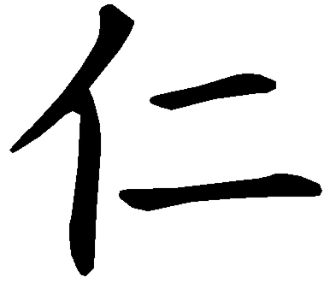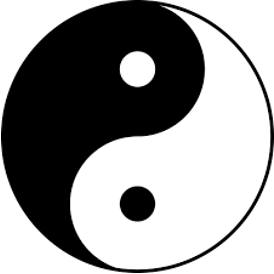RELG 1040 Confucianism and Daoism
1/45
There's no tags or description
Looks like no tags are added yet.
Name | Mastery | Learn | Test | Matching | Spaced |
|---|
No study sessions yet.
46 Terms
The Three Teachings (sanjiao)
Confucianism, Daoism, Buddhism; the fundamental pillars of Chinese society; beliefs often overlapped
li
rituals, social interactions, relationships with the people around us
Self-Cultivation
process of personal development focused on enhancing and changing one's moral character and social behavior to achieve a harmonious and virtuous life through li
junzi
“gentleman” ; a person of exemplary or authoritative behavior ; originally meant people with high birth, but Confucius said anyone could become one
ren
goodness, benevolence, humaneness ; arises from interaction between people
filial piety
emphasizes respecting and caring for one's parents and elders
Qingming
: festival for burying; family comes together from all over; takes place in the spring annually; “tomb sweeping festival” ; eat food like thanksgiving
Dao
the Way ; the moral order of the cosmos and the sense of path taken by the followers
wuwei
“non-action” ; acting without intention or self-interest;
Ziran
“thus and so of itself” ; spontaneity and naturalness ; referring to the natural state of things, the natural order of the universe, and the spontaneous unfolding of events
alchemy
the pursuit of immortality and a long, healthy life is a central focus ; external – focused on. Creating a pill or elixir that would grant immortality ; internal – practices of meditation and balance of qi would grand immortality
qi
energy, vital energy, breath ; humans goal is to keep it flowing through body ; stress and other things block it
yin-yang
encompases harmony of opposed principles ; everything in the universe corresponds with yin and yang
The Cultural Revolution
Confucians, Buddhists, and daoists were attacked; religious symbols were destroyed ; goal was to preserve Chinese socialism by purging remnants of capitalist and traditional elements from Chinese society
No, he saw himself as a transmitter and not a creator, and as a believer in and lover of antiquity
Did Confucius see himself as the founder of Confucianism?
Arguments against labeling confucianism as a religion
Confucianism is a belief system that includes ethical, political, and philisophical teachings, rather than religious
Confucius was agnostic towards the afterlife, and there is no specific doctrine of gods, spirits, or the afterlife
Arguments for labeling confucianism as a religion
Refers to “heaven” in the Analects as a source of moral authority
IN Finagarette’s essay, he thinks Confucius thought secular practices to be sacred, especially social interactions and rituals
Purpose of life for Confucians
to become a junzi, or a gentleman
Purpose of life for Daoists
to become a sage or immortal
Five Relationships of Confucianism
Child —> Parents
Younger Sibling —> Older Sibling
Wife —> Husband
Subject —> Ruler
Friend —> Friend
important to follow as they promote the ideals of hierarchy, harmony, and respect
How to become a junzi according to Confucianism
studying and practicing li
annually in the spring by bringing together the family and sweeping the tombs, presenting offeringgs, and eating a meal with the entire family to recognize your ancestors
When and how is Qingmming celebrated
Shows respect to your elders, even after their death
How does Qingming embody Confucian values
external alchemy
focused on creating a pill or elixir that would grant immortality
internal alchemy
practices of mediation and balance of qi to grand immortality.
Practicing both Confucianism and Daoism
Confucianism provides a basic ethical framework and emphasizes self-cultivation through rituals, social interactions, and respect within our relationships through the practice of li.
While Daoism gives teachings about the nature of the universe and reality, and how to act in accordance with the natural flow of the universe.
the arts including paintings, sculptures, and architecture, and the promise of enlightenment in this life
Why were people in China attracted to Buddhism
interpreted Buddhist’s monks ascetic withdrawal from society as a shrinking of responsibility
argued Buddhism lacked authority because it had not originated in Chinese Antiquity
Why were Confucians sometimes critical of Buddhism?
The Great Learning
a short Confucian text that outlines a path to personal and social transformation. It emphasizes the importance of self-cultivation, knowledge, and moral character as the foundation for a well-ordered society.
The Analects
: It teaches how to live a moral life through respect, learning, and proper behavior
Mencius
Teaches that human nature is inherently good and emphasized the importance of cultivating moral virtue through self-reflection and education
Xunzi
teaches that human nature is inherently bad, and that goodness is a learned behavior that benefits individuals. compares people to crooked wood, needing steaming and straightening to become “straight,” or good. He also mentions the necessity of teachers, stating, “Now since people’s nature is bad, they must await teachers and proper models, and only then do they become correct in their behavior.”
Fingarette’s Essay
It’s about how rituals create harmony and make ordinary actions feel sacred. Focuses on ritual (li) and its relationship to the development of a moral society.
Daodejing
explains “wu-wei” which translates to non-action or going with the natural flow of the universe, and explains how the dao is in everything like water
The Zhuangzi
uses the story of the Ox to show trained spontaneity, or letting things be how they are, and to cultivate ourselves through non-action
ren
means goodness, benevolence, and humaneness.

yin-yang
It symbolizes harmony of opposed principles, and that everything in the universe corresponds and flows within Yin and Yang.

the Dao is the moral order of the cosmos
What do Confucians believe about the Way?
the Dao is the mysterious source of the cosmos
What do Daoists believe about the Way?
self-cultivation can be achieved through rituals and li
What do Confucians believe about self-cultivation and trained spontaneity?
self-cultivation can be achieved through wu-wei and non-action
What do Daoists believe about self-cultivation and trained spontaneity?
achieving social harmony
Confucian ideals
achieving harmony with nature
Daoist ideals
combines the words Chinese characters for “person” and two, suggesting that it arises from interaction between people, and that we can cultivate ourselves with other people.
etymology for ren
harmony of opposed principles, and that everything in the unverse corresponds and flows within Yin and Yang
symbolizing of yin-yang
goodness, benevolence, humaneness
ren